Thinking about moving to Italy? Here’s the low-down on the best places to set up home.
Sophisticated, beautiful, and romantic, Italy has been luring Brits to its shores for centuries, and with good reason.
The Mediterranean lifestyle is laid back, the weather wonderful, the food and wine delizioso, the scenery spectacular, and the social scene vibrant.
With so many marvellous places in Italy, there’s plenty of choice for Brits who want to relocate there — but which have the most to offer expats?
We’ve explored each Italian destination and hand picked the 9 best places to live in Italy for British expats.
Read on to discover which dream location suits you best…
Rome
Rome really needs no explanation. A hotbed of culture, architectural wonders, fabulous food, scintillating nightlife, and incredible shopping, Rome is a city full of passion that never fails to dazzle and delight.
Packed full of historical icons such as the Colosseum, Pantheon, and Trevi Fountain, showy piazzas and ornate churches, and world class museums and galleries, this is a city to please anyone interested in history, art, and culture.
Alfresco dining and people watching are a way of life here, and options range from lively traditional trattorias to Michelin starred contemporary restaurants.
Rome never fails to deliver when it comes to entertainments either, whether an evening at the opera is your thing, or going wild in glamorous nightclubs.
In short, expats living in Rome are spoilt with the opportunity to indulge in an incredible lifestyle. Even though Rome is Italy’s capital city, the cost of living there is around 35% cheaper than London.
Although still fairly expensive, rental accommodation and public transport prices are significantly lower than in London, which is good news as the city boasts an excellent public transport system. Entertainments such are eating out at restaurants and going to the theatre or cinema are also cheaper.
Here’s a great video on what it’s really like to live in Rome as an expat:
Rome is one of the best places in Italy for expats to find employment. A multitude of big international corporations work out of the city — particularly banking, real estate, and finance companies — and there are also plenty of openings for British expats in the tourism, teaching, or working in bars, restaurants and hotels. Wages generally aren’t as high as some other European cities, but it’s quite possible to live well in Rome on a reasonable budget.
Even though it can be tempting for Brits to simply socialise within Rome’s large and active expat communities, it’s well worth diving into the culture and making Italian friends and connections.
While many people in Rome speak English, it is advisable to get a good grasp of the Italian language as soon as you can as the locals will appreciate it and it will greatly improve your job prospects.
Abruzzo
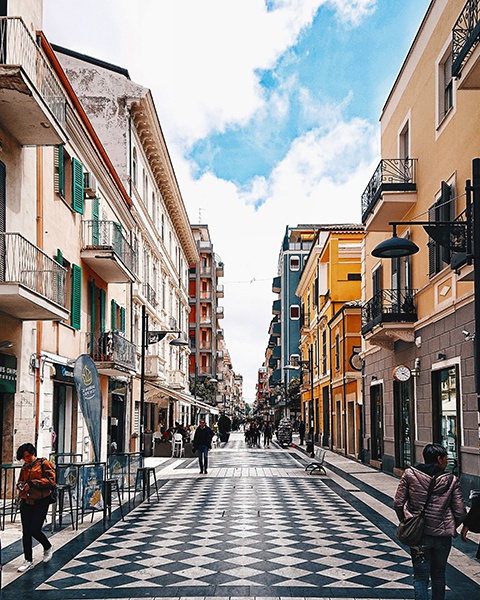
Beautiful and wild, Abruzzo is a region which is in many places remains relatively untouched by tourism. The landscape is varied, with swathes of mountain plains, undulating valleys, historic hillside towns, the southern Adriatic coast with its soft golden sand beaches, and some of Italy’s most impressive national parks to discover.
L’Aquila is the regional capital, but it suffered heavy damage in the 2009 earthquakes and is still in the process of rebuilding.
The area is sparsely populated, and is a good choice for expats who are looking for a quiet life, with coastal areas being more popular than those inland.
Brits interested in working in tourism may find opportunities in coastal areas, although inland employment opportunities are lacking as the land is mainly agricultural.
However for lovers of the outdoors and the traditional Italian way of life it’s possible to bag a bargain property in Abruzzo and live comfortably on a small budget as the cost of living here is very low.
The charming towns of Pescara, Sulmona, Teramo, and Chieti have a relaxed ambiance and offer expats plenty of cultural entertainments, great shopping, and fabulous restaurants which use only the simplest and freshest local ingredients.
Tuscany
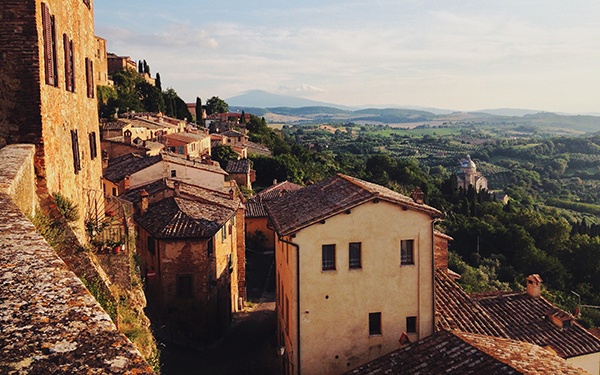
A long time favourite with British expats, Tuscany is picture perfect. It’s much loved for its rolling hills and vineyards reaching to the horizon punctuated with soaring cypress trees, quaint towns and villages, 250 miles of blissful Mediterranean coastline, exquisite food and wine, and rich artistic and cultural heritage in the form of an abundance of historical UNESCO sites and glorious medieval and Renaissance artworks scattered throughout the region’s myriad churches, galleries, and museums.
The region comprises the city of Pisa with its infamous leaning tower, and the romantic city Florence — the birthplace of the Renaissance — with its incomparable art and architecture, stylish boutiques, and sensational restaurants.
Outdoor pursuits abound in Tuscany, from watersports on the coast to hiking, cycling, horse riding, and golf inland.
There is already a significant expat presence here, and many locals speak English, however the dream doesn’t come cheap as the region does command higher prices.
The capital city, Florence, is the most expensive place to live, with smaller towns and rural areas being significantly less pricey, but it is worth bearing in mind that there are far greater job opportunities for expats in Florence, Siena and other big cities than further out in the countryside.
Always shop and buy local in order to minimise your monthly expenditure, and the good news is that Tuscan wine is exceptionally good and dirt cheap!
Amalfi
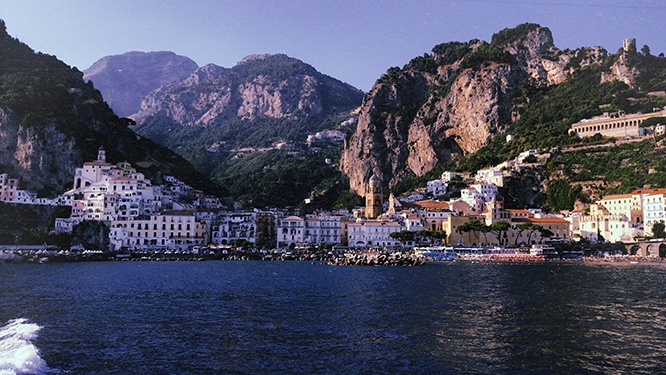
Some of the most spectacular coastal scenery in the world can be found along the Amalfi coast.
This 50 kilometre stretch between the towns of Salermo and Sorrento on the southern edge of Italy’s Sorrentine Peninsula, is simply breathtaking, and has been designated a UNESCO World Heritage site.
Along this length of coast lofty cliffs are interspersed with sun kissed sandy beaches and coves lapped by the azure ocean, and studded with pretty, pastel coloured towns and villages.
Amalfi has been a hotspot for the rich and the beautiful for thousands of years, and is unsurprisingly a hugely popular holiday destination — as well as expat destination — and it can be positively heaving in summertime, although the winter season from November until Easter is very quiet, with most businesses being closed until the start of the season.
It’s an outstanding location for wining and fine dining, hiking along trails such as the Sentiero degli Dei, or Path of the Gods high up on the cliffs above the town of Positano — a favourite place among the jet set — exploring the hidden coastline by boat, or just lounging on the beach.
As you would imagine, living in such a glamorous location can be very expensive, especially in the most touristy areas.
Accommodation is typically in purpose built apartments, with more choice available if you move a little further inland.
Work is scarce for expats here, and most Brits who move here are retired. That said, possibilities exist in the tourism industry in restaurants and hotels during the summer season, and skilled tradesmen such as builders and plumbers may find renovation work available throughout the year.
There are a good number of English speakers in this region, but the ability to speak Italian is a huge advantage when it comes to living and working in Amalfi.
Naples
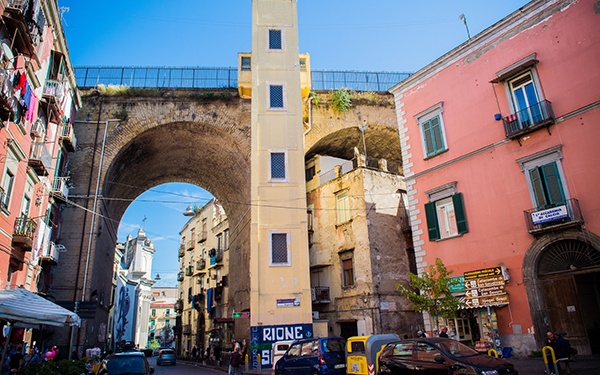
The enchanting city of Naples is the capital of southern Italy.
It’s the birthplace of many a myth and legend, and an air of mystery surrounds the city, from its ancient ruins and magnificent frescos and mosaics, to its ornate palaces and baroque churches.
There’s a vibrant arts scene here, with some excellent contemporary galleries, and the area draws creative types in abundance.
Equally, gourmands love Naples for it’s bountiful fresh produce from earth and sea, and some of Italy’s best restaurants can be found here.
With a plethora of elegant boutiques, antique shops and high fashion, shopping is a favourite pastime in this grand coastal city.
That said, Naples does have a somewhat seedy side. In certain areas many of the buildings are crumbling into disrepair, and although huge efforts over the past decade to crack down on crime, crime rates are fairly high for an Italian city. This does add a certain edginess to this bustling and intriguing city with soul, but it nevertheless still holds considerable appeal.
As Italian cities go Naples is one of the more affordable, with rental accommodation costing roughly half of what it would cost in Milan, Italy’s most expensive city.
However levels of unemployment here are high at around 30%, and there is stiff competition for jobs. British expats hoping to live and work in Naples are most likely to find employment in the tourism, education, finance and international business sectors.
Florence

Since the 19th century expats have flocked to the exquisite city of Florence in the heart of Tuscany, bewitched by the romantic atmosphere overflowing with incredible arts, literature and architecture, sensational Tuscan cuisine, and cutting edge fashion.
Today the expat community is still going strong, with regular meet ups and organised events, and there are a wide mix of cultures.
Small for a major city but perfectly formed, Florence had boundless old world charm, from the winding cobbled streets to the sublime sunsets across the river Arno from the medieval Ponte Vecchio, and the lively Renaissance piazzas which teem with energy.
Most who call Florence home tend to be a cultured lot. The eclectic social scene revolves around delicious food and wine, the thriving arts scene, shopping in quirky boutiques, regular festivals, and buzzing nightlife in chic bars and clubs.
Due to its compact nature, the city is easy to get around and has an excellent public transport system, which is very affordable to use.
General living costs in Florence are quite high, with rental prices for a studio apartment in the city centre being around €790, although this is still significantly cheaper than London prices – at least 50% on average. Utilities tend to be on the pricey side, costing around €140 per month for a small apartment.
Eating out can be costly, although there are plenty of good options for a smaller budget, and groceries are generally of excellent quality, but can be expensive.
It can be difficult for expats to find work in Florence. The city’s economy is mainly based on tourism and trade, as well as food and wine production in the surrounding areas. Competition for jobs can be tough, and preference will be given to those who can speak Italian.
Teaching English is also a good option for Brits who want to work here — particularly at university level.
Parma
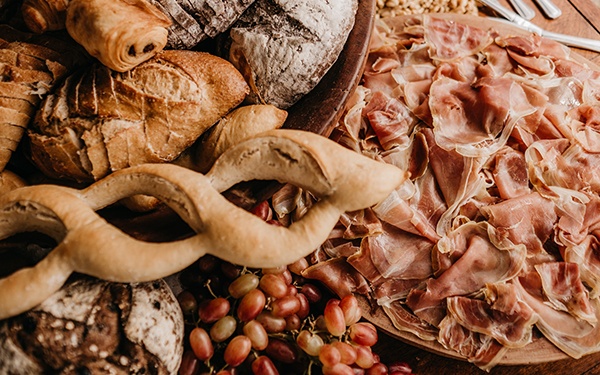
One of Italy’s most prosperous cities and located at the foothills of the Apennine mountain range, Parma is a foodie’s delight.
It is indeed the place that created parma ham and parmesan cheese, multitude variants of which are begging to be tasted in the numerous cafés and restaurants in this elegant city, and it is one of the most important culinary destinations in the country.
But there’s more to Parma than just its delectable cuisine.
This is a laid back, highly cultured city, with many stunning monuments, churches and palaces, lush parks, theatres, museums and galleries, and open air classical performances to enjoy.
It’s also just a few miles from Taro River Regional Park, a 3000 hectare nature reserve along the Taro river, teeming with birds and other wildlife. Parma’s university lends a youthful air to the city, but there is more than enough here to please expats of all ages.
Living costs here are relatively affordable in comparison to other Italian cities, with rental prices for studio apartments ranging from €430 to €600 per month depending on the area, and utilities averaging at around €200 per month.
Dining at a traditional trattoria can cost as little as €20 per person, or if you’ve got the cash to flash you can indulge in expansive fare in one of the many fine dining establishments.
Unsurprisingly the majority of Parma’s economy is based on food export and tourism, and expats may find employment in this field. Alternatively, teaching English is another option popular with British expats.
Sardinia
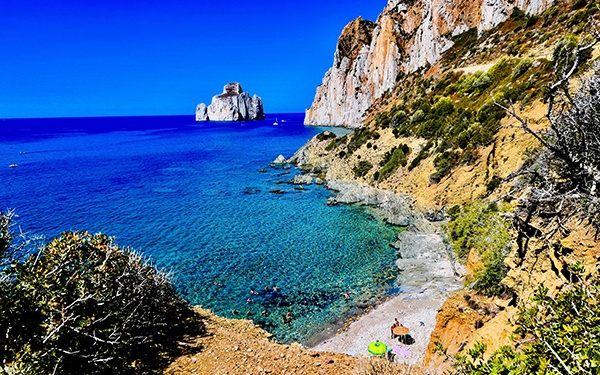
The island of Sardinia lies equidistant between Europe and Africa in the turquoise waters of the Mediterranean sea.
This gem of an isle is a beach lovers paradise, with some of the most sensational white sand beaches in existence, gorgeous hidden coves, and gently rolling dunes.
Beautifully rugged, Sardinia is just as captivating inland, and offers up some fantastic opportunities for hikes through the forest, exploring ruins and Bronze Age towers and settlements, and discovering dreamy, sleepy hamlets scattered haphazardly around the countryside.
Situated between two large, languid lagoons, Sardinia’s capital city Cagliari is vibrant, and packed with restaurants, bars, clubs, and boutiques.
The island is a top tourist destination, but there are nevertheless countless tranquil spots to be found, and lots of potential for Brits wanting a slice of the rural Italian good life.
Sardinia’s expat community isn’t huge, but if you’re willing to learn the lingo you will find yourself welcomed warmly by the locals, who possess a strong community spirit and sense of family.
Glittering Costa Smeralda to the north east of the island — a 55 kilometre stretch of fine sand beaches, glitzy hotels, upscale restaurants, and effervescent nightlife — is a favourite playground for the rich, beautiful, and famous.
It’s also a popular place with expat retirees, as well as expats coming to work in Sardinia’s tourism industry.
Aside from tourism there are few opportunities for Brits wanting to work on the island, most just come here to enjoy the incredible lifestyle, laze on the beach, and soak up the sun.
Yes it is very expensive to live here, although if you’re willing to swap the jetset glamour for a rural way of life in more remote inland areas it is possible to live in Sardinia on a much lower budget.
Sicily
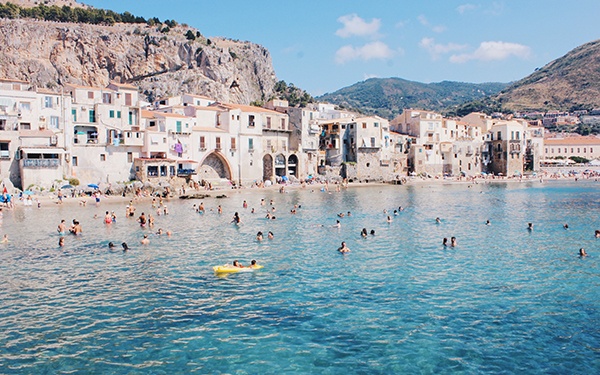
Sicily is dazzlingly beautiful and powerfully seductive, with an atmosphere imbued with its almost mystical history, and just like the sirens of the ancient world, it lures passers by to its shores — only not to their deaths, rather to their delight.
The largest island in the Mediterranean, Sicily has a varied landscape, from the burbling volcanoes at its core through to lush mountain meadows and dramatic craggy cliffs and beaches lapped by pristine waters.
The Sicilian way of life has been heavily influenced by the various cultures who in the past, have wanted to claim it for their own, resulting in a unique ambience distinctly different to that of mainland Italy.
Temples, ruins, mosaics, palaces, and monuments — vestiges of ancient Greek, Arab, Roman and Phoenician civilisations amongst others — are liberally scattered throughout the island.
The Sicilian dialect is widely spoken, and the native cuisine is an exotic mix of seafood, spices, and citrus. Sicilians lead a pleasant, simple lifestyle, which appeals to expats who yearn for a quieter pace of life.
Coastal areas are particularly popular with tourists, and there are a number of opportunities for Brits seeking work in this field of employment.
The island’s capital is Palermo, a busy cosmopolitan city bursting with baroque charm, excellent restaurants and bars, atmospheric markets, and a burgeoning arts scene.
Rural areas remain affordable places to live, but in the cities and resorts along the coast prices take a steep hike.
That said, rental accommodation can be found to suit most budgets — even in more expensive areas. Eating in restaurants and evening entertainments can be very affordable, but beware of steep alcohol prices.
Overall the cost of living in Sicily is quite cheap in comparison to many other places in Italy.
Where do you think is the best place to live in Italy?






